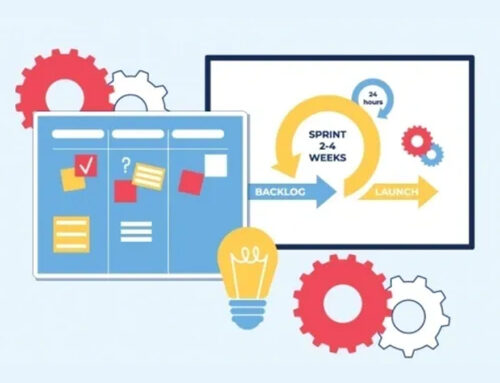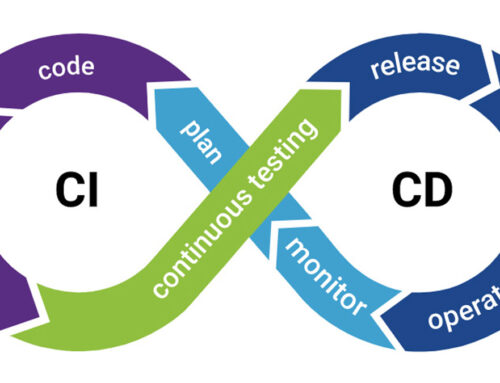In today’s data-driven world, businesses have access to more data than ever before. However, it’s not enough to just collect data; businesses need to analyze and use that data to make informed decisions. The sheer volume of data generated today can be overwhelming, often leading to disorganized and unstructured datasets.
Companies struggle to make sense of this information and extract valuable insights. However, industry leaders are demonstrating how leveraging big data and analytics can lead to business growth and success.
This case study explores how organizations across diverse sectors, including the aerospace industry, sports industry, and life sciences industry, are utilizing big data to enhance their operations.
1. Airbus: Enhancing Customer Experience through Big Data and Analytics
As a global leader in the aerospace industry, Airbus faces the challenge of maintaining efficiency, productivity, and innovation in a complex and competitive market.
To stay ahead, Airbus relies on big data and analytics to streamline operations and improve customer experience. By using IBM InfoSphere Data Explorer, Airbus consolidates over 4TB of indexed data from various business units, making it centrally accessible for their service department.
This empowers staff with crucial information for timely airline maintenance programs.
Leonard Lee, the vice president and head of new business models and services at Airbus Group, highlighted the untapped potential of data generated by aircrafts. By harnessing this data for predictive maintenance, Airbus can quickly get planes back in the air, resulting in over $36 million in annual savings.
Additionally, digital solutions on the shop floor allow workers to update project statuses in real-time, fostering collaboration and reducing paperwork. This proactive production approach has been integral in the development of the H160 helicopter.
Lee emphasized the importance of data-driven business models, analytics, machine learning, and artificial intelligence in improving customer experience and capturing value across the value chain.
2. NFL Teams: Leveraging Big Data and Analytics for Performance Enhancement
In April, the NFL Players Association (NFLPA) partnered with WHOOP, a wearable device manufacturer, to help athletes monitor their health and performance.
The WHOOP device tracks sleep, muscle strain levels, and individual workloads, enabling coaches to tailor training sessions accordingly. When used responsibly, biometric data technologies can reduce injuries, improve performance, and extend athletes’ careers, according to bioethicists Katrina Karkazis and Jennifer Fishman.
Former NFL linebacker Isaiah J. Kacyvenski endorsed the initiative, stating that players should view their bodies as businesses and embrace opportunities to create more value. The NFLPA declared that athletes would own the data and insights generated by the WHOOP devices and could use or sell them as they wished. However, the use of the device during matches is currently prohibited.
3. HealthTech Innovators: Revolutionizing Healthcare through Big Data and Analytics
HealthTech Innovators, a leading organization in the healthcare technology industry, is transforming patient care and medical research by harnessing the power of big data and analytics. With the rise of electronic health records, wearable health devices, and telemedicine, the healthcare industry generates vast amounts of data daily. HealthTech Innovators have recognized the potential of this data to revolutionize healthcare delivery and patient outcomes.
To achieve this, the company has developed a cutting-edge, cloud-based analytics platform that integrates data from multiple sources, such as electronic medical records, wearables, and medical imaging. The platform employs advanced machine learning algorithms and artificial intelligence to analyze this data, offering personalized insights to healthcare providers and researchers.
By leveraging big data, HealthTech Innovators have made significant strides in several areas, including:
- Early diagnosis and intervention: The platform’s predictive analytics capabilities enable healthcare providers to identify early signs of diseases and high-risk patients, facilitating timely intervention and treatment.
- Personalized treatment plans: With the help of big data, healthcare providers can tailor treatment plans according to each patient’s unique needs, medical history, and genetic makeup, improving the effectiveness of therapies and reducing side effects.
- Drug development and clinical trials: Researchers can utilize the platform’s vast dataset to discover new drug targets, identify potential patient populations for clinical trials, and monitor trial outcomes in real-time, accelerating the drug development process.
- Population health management: HealthTech Innovators’ platform allows public health organizations to monitor and analyze data on a population level, aiding in the identification of health trends, the allocation of resources, and the development of targeted interventions.
Dr. Jane Smith, the CEO of HealthTech Innovators, emphasized the importance of embracing big data in healthcare, stating, “Our mission is to transform the healthcare landscape by empowering providers and researchers with the insights they need to make data-driven decisions. The future of healthcare lies in harnessing the power of big data and analytics to deliver personalized, efficient, and effective care.”
In conclusion, while big data and analytics can be challenging to navigate, they offer invaluable insights that enable businesses and organizations to automate processes, understand their target markets, and optimize operations for improved productivity and efficiency.
Embracing the complex nature of big data, as demonstrated by industry leaders, can lead to significant business success.












